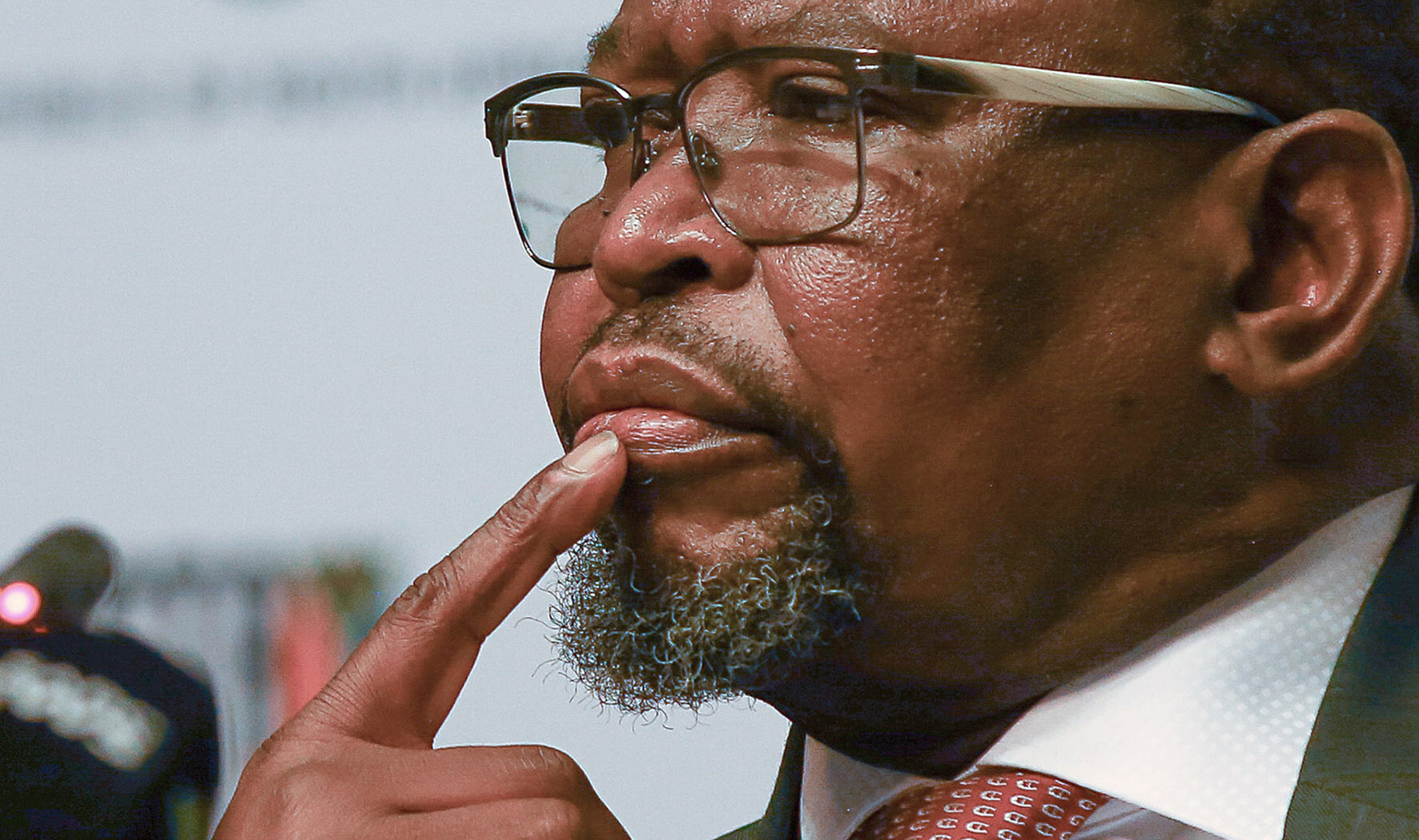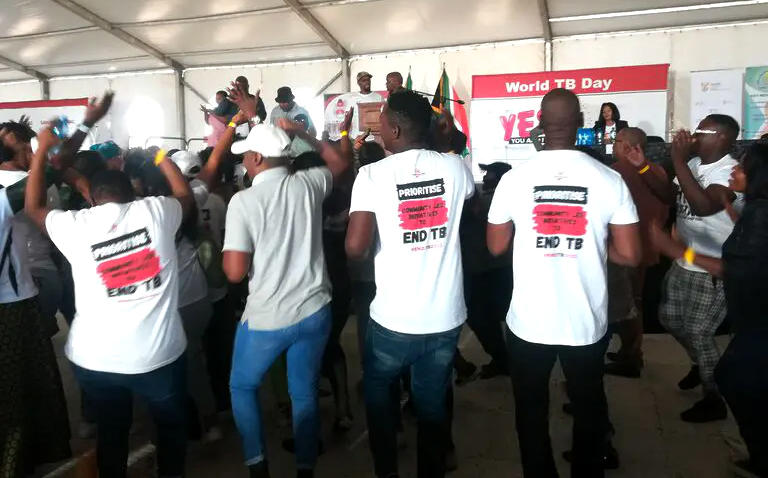SPOTLIGHT OP-ED
We must question how government’s promised financial hike for TB programmes will be managed
South Africa’s new National Strategic Plan for HIV, TB, and STIs 2023-2028 and the country’s TB Recovery Plan necessitate a sharp increase in TB testing and increased enrolment into care, which will require additional spending on testing and medicines. Sihle Mahonga Ndawonde Ndawonde argues that a joint committee should be set up to review and interrogate provincial departments’ resource allocation decisions for the next three years.
South Africa’s new roadmap to tackle HIV, TB and sexually transmitted infections — the National Strategic Plan — lays out an ambitious list of priority actions that need to be undertaken over the next five years. The plan, released on World TB Day on 24 March, has been lauded for its multisectoral approach, which places a significant emphasis on the involvement of the community. It has been welcomed by several healthcare advocates.
But there will be many eager eyes watching the National Department of Health as they roll out plans and initiatives linked to the National Strategic Plan for HIV, TB and STIs 2023- 2028 (NSP).
Read more in Daily Maverick: SA’s new National Strategic Plan for HIV, TB and STIs mostly hailed, but challenges lie ahead
There will also be many questions as healthcare advocates establish how the new plan fits into the National TB recovery plan, introduced in 2021 to help regain momentum in the TB response lost at the height of the Covid-19 pandemic. The resounding sentiment within civil society is one of putting policy into action and while these two plans play an integral role in supporting the National TB Programme, every good plan needs sufficient funding.
The situation around TB remains dire in South Africa. It is still a major cause of death and disability. According to the latest statistics of the World Health Organization, there was an estimated 304,000 new TB infections in South Africa in 2021.
Read more in Daily Maverick: Staggering 56,000 TB deaths in SA in 2021, estimates WHO
The new NSP was launched just weeks after grim scenes outside the country’s public hospitals as strikes limited access to healthcare facilities. The impact of these strikes will be felt at these healthcare facilities for some time and will also have an indirect longer-term effect on the healthcare sector, particularly around the implementation of health programmes. Ultimately, services linked to TB programmes will be one of the losers.
But where is the link you may ask?
When Finance Minister Enoch Godongwana delivered his budget speech in February, TB got a special mention for the first time in years.

Finance Minister Enoch Godongwana. (Photo: Gallo Images / Ziyaad Douglas)
Godongwana allocated R809.4-billion to the health sector over the 2023 MTEF period (three financial years) to support the provision of equitable access to healthcare services. The focus, said Godongwana, should be on addressing the accumulated backlog in core health services such as surgery, oncology, antiretroviral treatment, and tuberculosis screening and treatment that resulted from disruptions to routine healthcare services due to the pandemic.
According to the budget review document, these amounts will be channelled through the provincial equitable share to help address service backlogs and alleviate critical funding pressures in healthcare personnel (potentially also to retain some of the additional staff recruited during the height of the Covid-19 pandemic), medicine, laboratory services, medical supplies, and other key goods and services. These arise partly from budget reductions following the pandemic-related economic downturn.
But herein lies the challenge — TB services are primarily funded through this provincial equitable share that the minister speaks of.
When we talk about TB services, it refers to the National Department of Health’s National TB Programme that needs to be implemented. And then there is also an ambitious TB Recovery Plan that the health department created to help regain momentum in its TB response lost during the harsh Covid years. At the centre of this plan is a ramp-up in testing, which will come with its own budgetary needs.

Activists attending World Tuberculosis Day in Rustenburg, North West. (Photo: Nthusang Lefafa / Spotlight)
So, in essence, the equitable share will need to cover these programmatic obligations but it will also need to finance the outcomes of the wage negotiations. Everything needs to come out of the same purse.
When Godongwana allocated R809.4-billion to health to support the provision of access to healthcare services, was he considering the wage bill that could emanate from the public sector wage negotiations as well as meet programmatic needs?
Much has been written about the governance challenges around South Africa’s National TB Programme. There have been great improvements where, at one point, 448,000 fewer TB tests were conducted in 2020, but it has now returned to pre-pandemic numbers.
The concern is that the TB Recovery Plan necessitates a sharp increase in testing and increased enrolment into care, which will require additional spending on testing and medicines.
This will require funds.
With the uncertainty of future funding flows, it is essential that Parliament considers how existing publicly funded healthcare capacity is optimised and prioritises those with the greatest need.
There are a few ways to solve this.
A joint parliamentary committee could be set up temporarily to review and interrogate provincial departments’ resource allocation decisions for the next three years.
This will ensure money allocated to TB is sufficiently spent on the implementation of TB services promised in the National TB Programme and the TB Recovery Plan. Parliament has a responsibility to ensure that the division of revenue and individual budget votes prioritise these services.
Wage negotiations in the public sector are necessary and as the cost of living rises, healthcare workers should be adequately compensated for the work that they do. However, their salaries should not compromise the programmatic obligations in the health sector. The obligations around the TB response are a critical part of tackling the scourge of TB in South Africa and its outcomes cannot be compromised. DM/MC
*Mahonga Ndawonde is the Project Officer for the newly established TB Accountability Consortium, which aims to strengthen TB care in SA by consolidating the implementation of policies, technical solutions, and advocacy efforts on a national and provincial level.
*This article was published by Spotlight – health journalism in the public interest.





















Comments - Please login in order to comment.